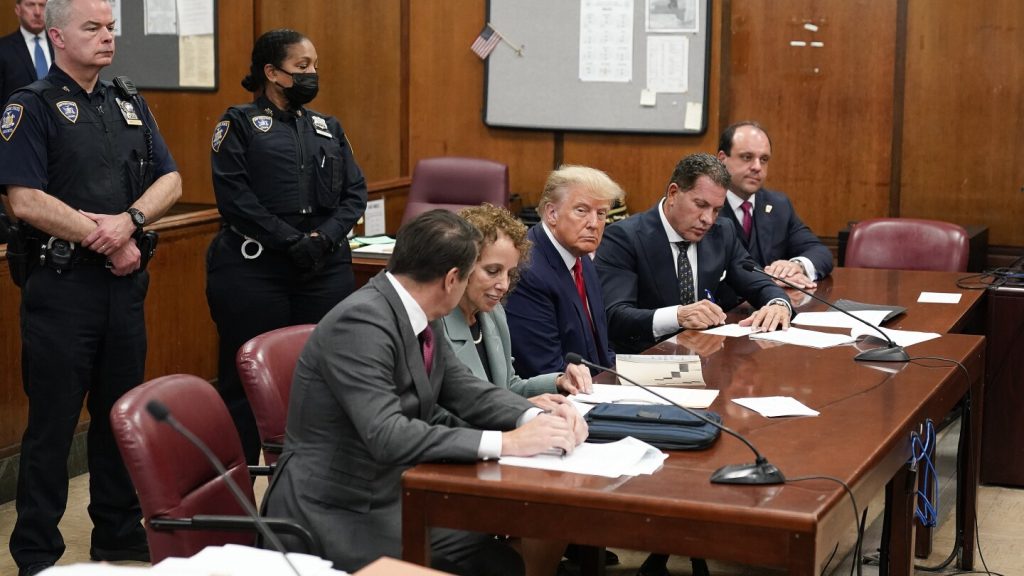The ongoing criminal trial of former President Donald Trump in New York City involves a rigorous jury selection process. Lawyers on both sides are actively seeking potential jurors who may lean in their favor, utilizing social media checks to identify any hidden biases or extreme views. Potential jurors are being scrutinized based on their online activity, with some being dismissed after posting anti-Trump sentiments or celebrating Joe Biden’s election win. Both prosecution and defense are aiming to select a competent jury that may just slightly slant in their favor.
Despite the efforts of lawyers, experts in jury selection acknowledge that there are limitations to the process. According to veteran criminal defense lawyer Tama Kudman, jury selection involves more of eliminating undesirable jurors rather than picking the perfect jury. The ideal jury is one where neither side is completely satisfied, as both prosecution and defense have excluded jurors who raise concerns. This balancing act is crucial in ensuring a fair trial for the defendant.
As jury selection continues, each potential juror is being questioned about their ability to remain fair and impartial. Lawyers are examining responses to a set of 42 questions, which probe for any affiliations with extremist groups or involvement in political rallies. Both the defense and prosecution have the opportunity to strike up to 10 potential jurors they deem unfit. Additionally, a social media check has become a critical tool in recent years, revealing any discrepancies between a potential juror’s court answers and their online activity.
Some individuals who were considered for the jury were found to have posted inflammatory content on social media. In such cases, the individuals were confronted with their posts in court to determine their impartiality. The judge made decisions on whether these posts warranted dismissal, with some leading to potential jurors being struck from the selection process. Despite efforts to ensure a fair and unbiased jury, challenges have arisen, including the need to make strategic strikes to remove jurors with concerning biases.
Former President Trump expressed frustration with the limited number of strikes allowed during jury selection, calling it a ‘Witch Hunt.’ Notable exclusions from the jury pool included a prosecutor from the Bronx and a man who works in real estate and admires Trump’s book. The selection process highlighted the complexities of choosing a jury, with attorneys relying on intuition and gut instincts. Sabrina Shroff, a criminal defense attorney, described jury selection as a stressful yet essential part of any trial, emphasizing the unpredictability of the process.
In conclusion, jury selection in Donald Trump’s criminal trial is a meticulous process that involves assessing potential jurors for biases and affiliations. Both sides are utilizing social media checks and questioning to ensure a fair and impartial jury. While challenges may arise in the selection process, the goal remains to select a jury that will deliver a just verdict. As the trial progresses, the scrutiny of potential jurors will continue, with lawyers aiming to secure a jury that is as unbiased as possible.


